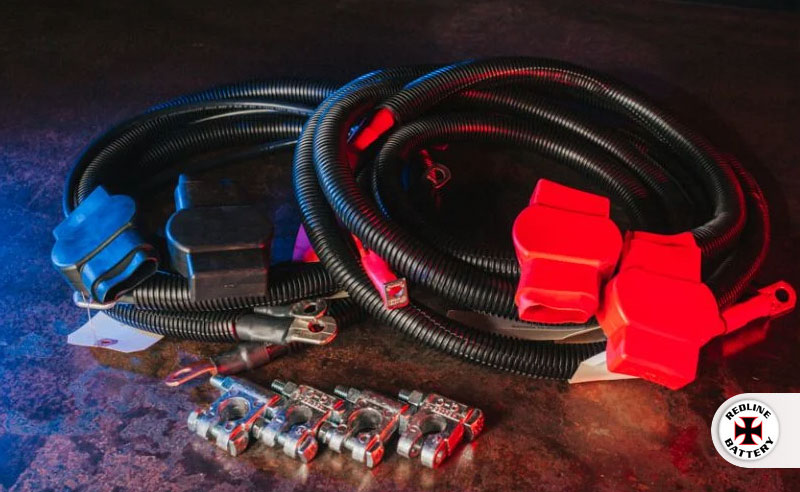
Overview:
Custom battery cables offer a tailored energy solution to specific needs and requirements. With various options and configurations available, businesses and individuals can design battery cables that perfectly match their application.
Here are some following ways in which custom battery cables can be tailored to fit your needs, maximizing efficiency and functionality:
1. Length:
Custom battery cables can be manufactured to exact length specifications, ensuring a precise fit and reducing unnecessary slack or strain. Whether you require shorter cables for space-saving purposes or longer cables for extended reach, tailor-made options are available.
2. Wire gauge:
The wire gauge of battery cables determines their current-carrying capacity. By selecting the appropriate wire gauge for your specific application, you can ensure optimal performance and prevent potential overheating or voltage drops.
3. Insulation material:
Varying levels of protection and durability offers different insulation materials. Custom battery cables allow you to choose the insulation material that best suits your needs. Options include PVC, Teflon, rubber, and silicone, each with its unique advantages.
4. Connector type:
Battery cables can be customized to accommodate different connector types, such as ring terminals, battery clamps, or Anderson connectors. By selecting the appropriate connector type, you can ensure a secure and reliable connection between the battery and the load.
5. Terminal type:
Custom battery cables can be tailored to fit specific terminal types, such as top post, side post, or marine terminals. This customization ensures a perfect fit and eliminates the need for adapters or modifications.
6. Color-coding:
Custom battery cables can be manufactured in different colors to enable easy identification and organization. This is particularly useful in complex electrical systems with multiple battery connections.
7. Stranding:
The stranding of battery cables refers to the number and thickness of individual wire strands within the cable. Different stranding options offer varying levels of flexibility and durability. By customizing the stranding, you can optimize the cable's performance for your specific application.
8. Voltage rating:
Custom battery cables can be designed to meet specific voltage requirements, ensuring safe and reliable operation. Whether you need cables for low voltage applications or high voltage systems, customization allows for the creation of a solution tailored to your needs.
9. Environmental considerations:
Custom battery cables can be manufactured with additional features to withstand extreme environmental conditions. This may include extra insulation for heat resistance or extra protection against moisture and chemicals.
10. Labeling and branding:
Custom battery cables can be labeled with specific information or logos, allowing for easy identification and branding. This customization option is particularly useful for businesses that require their cables to be easily distinguishable or want to showcase their brand.
Conclusion:
Custom battery cables offer a range of options for tailoring your energy solution to fit your specific needs. From length and wire gauge to insulation material and connector type, these customizable features ensure optimal performance and functionality. Whether you require cables for automotive, marine, industrial, or other applications, customizing your battery cables can provide a tailored solution that improves efficiency, reliability, and safety.
More News